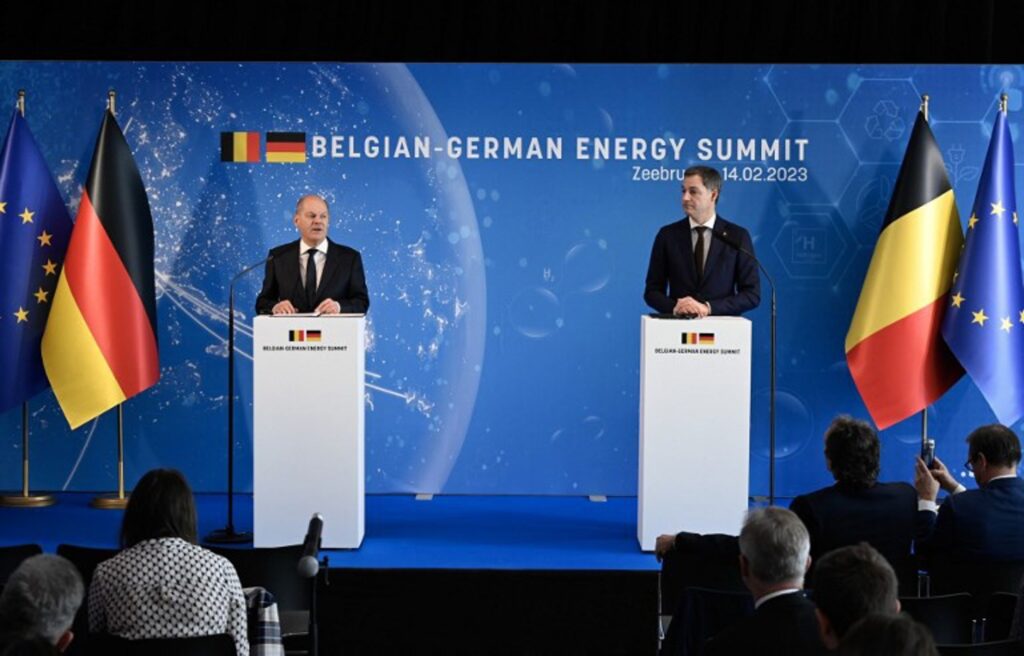
Image: Belgian Prime minister Alexander De Croo (r) and German chancellor Olaf Scholz (l) meet at the Belgian-German Energy Summit to set priorities on energy cooperation and ensure their implementation (courtesy of Belga)
Online agency Clean Energy Wire reports that Germany and Belgium have agreed to link their hydrogen networks, to double gas flow into Germany, and to explore the possibility of a second high voltage electricity interconnector for cross-border flows. The announcement was made following the first Belgian-German Energy Summit on 14 February. Belgian prime minister Alexander De Croo and German chancellor Olaf Scholz, together with the countries’ respective energy ministers, met on that date to set priorities on energy cooperation and ensure their implementation. In a joint statement, the two countries announced they had agreed to:
Further develop hydrogen infrastructure between Belgium and Germany, with the clear goal of connecting it by 2028;
Facilitate a major increase in the flow of liquefied natural gas (LNG) from Belgium to Germany, with the goal of doubling transit;
Jointly examine possibilities offered by carbon capture and storage;
Intensify co-operation on offshore energy in the North Sea and focus on joint hybrid and cross-border offshore projects;
Implement a second high-voltage interconnector for cross-border electricity flows;
Promote the introduction of market coupling between the European continent and the United Kingdom and Ireland.
Germany and Belgium have co-operated on energy matters for some years – the first interconnector went into operation at the end of 2020 – but the Russian invasion of of Ukraine and the acceleration of the energy transition “have further increased the need for co-operation and accelerated the implementation of joint projects,” Mr De Croo commented. LNG from Belgium, alongside that of Norway and the Netherlands, helped make up for reduced gas flows via Germany’s Nord Stream 1, contributing significantly to the country’s energy security, commented Mr Scholz. Until recently, Germany had no infrastructure to enable the importing of LNG. “Energy co-operation between Belgium and Germany has become ever more important,” the countries said in a joint statement.